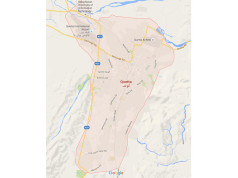Syed Mansoor Ahmed
Policy formulation is a crucial process that brings in the specific problem into the discussion to a specific solution. The government officials, state institutions, departments, political stakeholders, and the public are the deciding players to form a policy.
Policy formulation is a social knowledge-oriented strategy, which means to well aware of the problem. It enables all stakeholders to frame a valuable policy through proper diagnosis, which addresses the need for the public, through a certain conclusion. Before going to the formulation phase, it is integral to comprehend the problem through the lens of policy science.
In policy science, the main provisions for policy formulation are:-
i: The policy must be a problem-oriented; the phase sole emphasis is on an identification of the oddities of the problem, in order to form the accurate strategies
ii: The policy must be normative or valued based; the policy must follow the human and environmental standards
iii: There must be public participation during the formulation phase; it might enhance the domain of policy by encouraging the diversity of knowledge through the mean of public participation.
While addressing such peculiar needs, the policymakers must be aware of human behavior and the requisite of the environment. So, keeping in mind, these all could possible through the art of pure knowledge of policymaking.
Other than the technical aspects of the policy formulation, the role of philosophy also has a supporting function in the policymaking process. Philosophy is the heart of the noble discourse of human behavior. It is curious about the problems of the man and the paradox of knowledge. It gives us a deep understanding of the conflict goals of humans and the limitations of public policy.
The virtues and the difficulties of feminism, communism, socialism, vitalism, aristocracy, democracy, ethics, politics, economics, and psychology can only be understood under the frame of philosophy. The limitless philosophical scope could be provided with logical arguments. It might assist the policy analyst to analyze the social issue with direct attention. It also allows the policymaker to investigate the conceptual nature of the problem.
Even more importantly, the need for every policy formulation is to explore the questions of demand before. These demands must be treated in all feasible aspects of the policymaking process before real formulation and implementation.
The writer is a student at the University of Management and Technology Lahore and Public Policy Analyst based in Quetta.
Disclaimer: Views expressed in this article are those of the author and Balochistan Voices not necessarily agrees with them.
Share your comments!








